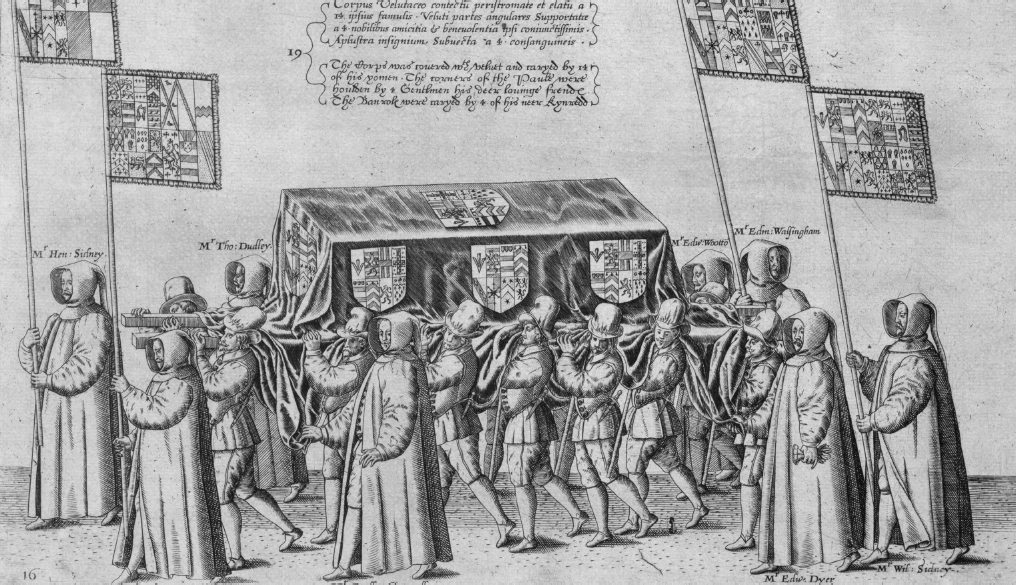royal marriage fracas
139–40
St Bartholomew’s massacre
1–2
,
80
,
81–3
St Giles, Cripplegate
41
,
64–5
Scotland
120
,
206–7
sequestering of archbishop Grindal
113–14
Sir Edward Stafford
185–6
spies in French embassy
168–9
strong convictions of
98
study at inns of court/Gray’s Inn
16
,
17–18
,
20
support for English intervention in France
49
sympathy with Calvinism
28–30
Thomas Norton
160–1
,
174–5
Throckmorton plot
173–5
war with Spain
231
,
233–5
William Davison
223–7
zeal of
59
Walsingham, William
7–8
Walsingham family
12
Watson, Thomas
132
Wentworth, Paul
99
,
152
Wentworth, Peter
13
,
111–12
,
242
Westmorland, Earl of
62
,
67–8
,
138
Whitgift, John
192–4
,
196
,
204
,
252
Whittingham, William
26
,
41
Wiburn, Percival
92–3
Wilkes, Thomas
125
,
175
William the Silent, Prince of Orange
55
,
78
,
119
,
125–7
,
136
,
178
,
179–81
Wilson, Dr Thomas
115
,
158
,
248
Winchester, Bishop of
49–50
Wolsey, Thomas
252
Wotton, Sir Edward
95
Wray, Sir Christopher
160
Wren, Christopher
3
Wyatt, Sir Thomas
23–4
York, Archbishop of
131

Sir Francis Walsingham c.1585, attributed to John de Critz the Elder.
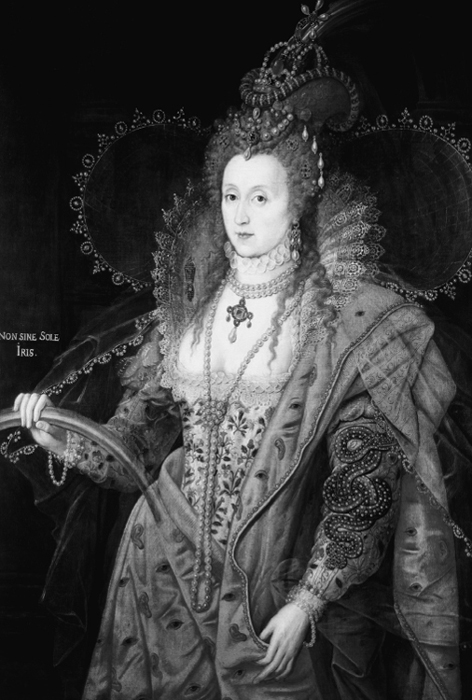
Queen Elizabeth I.
The Rainbow Portait
by Isaac Oliver. The gown of the ever-wary queen is spangled with eyes and ears. Vigilance and desire for peace (symbolized by the rainbow) go together.
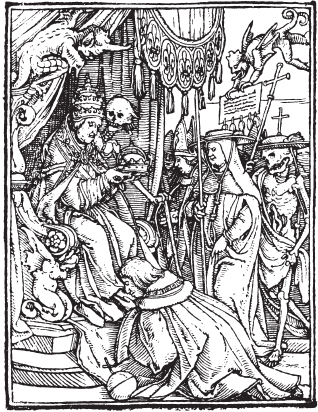
One of the main objections Protestants had about the papacy was its assumption of worldly power. As early as 1526 Hans Holbein made this engraving satirizing the pope’s presumption in receiving homage from the emperor.
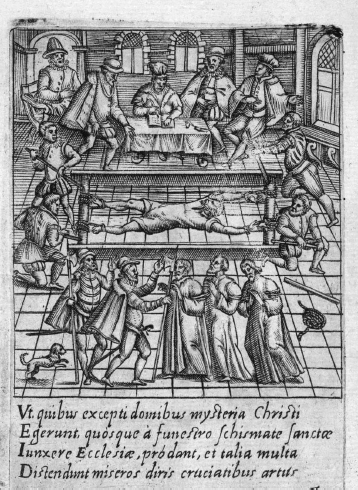
Racking of Catholic priests by Sebastiano Martellini. Like much religious propaganda of the period, this image, commissioned by William Allen, contained many inaccuracies.
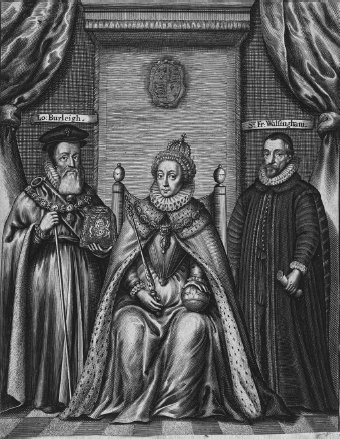
Queen Elizabeth with Burghley and Walsingham
by William Faithorne, 1655, in D. Digges
The Compleat Ambassador
. By the mid-17th century the two men were assessed as having been equally influential in the Elizabethan regime.
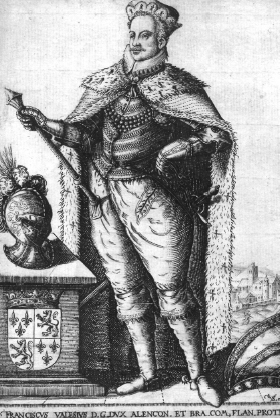
Francis duc d’Anjou (formerly Alençon) in a distinctly flattering portrait of Elizabeth’s ‘Frog’.
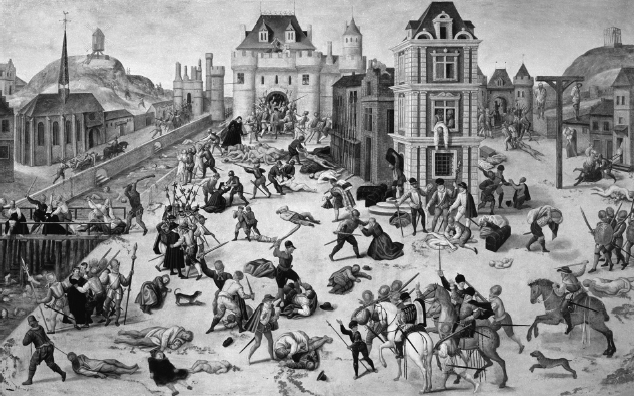
The St Bartholomew’s Massacre, 1572 – a hideous memory which remained vivid for Walsingham for the rest of his life.
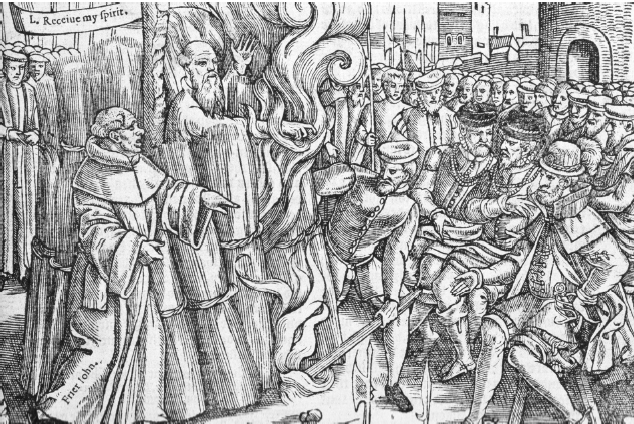
The burning of Thomas Cranmer as illustrated in John Foxe’s
Actes and Monuments
. Foxe’s version of church history kept alive the memory of the martyrs, especially those who died in the reign of Mary Tudor, the victims of savage Catholic repression. Walsingham, who lost friends and mentors in the Marian persecution was passionate about preventing another Catholic regime ever being established in England.
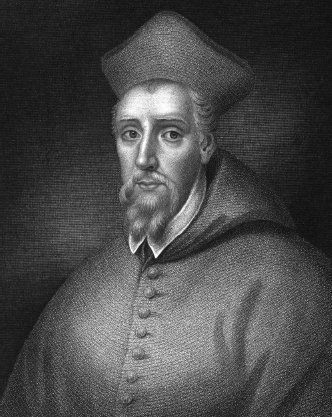
William Allen, founder of the Catholic seminaries at Douai, Rheims and Rome and organizer of the mission to England. Had the armada succcceeded Elizabeth would have been deposed (and probably executed) and Allen would have been nominated as regent.
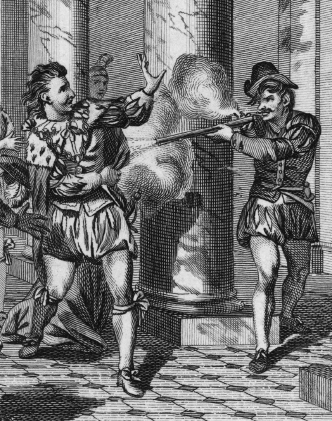
The assassination of William the Silent, 1584, leader of the Dutch revolt, one of the few Catholic atrocities which moved Queen Elizabeth to look to her own security.
